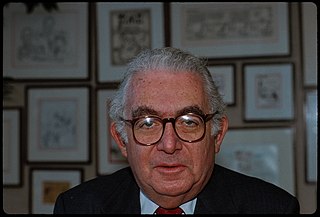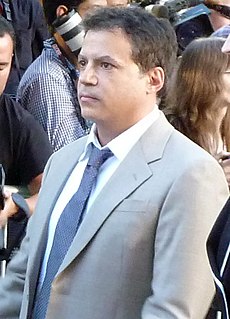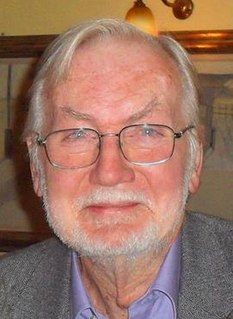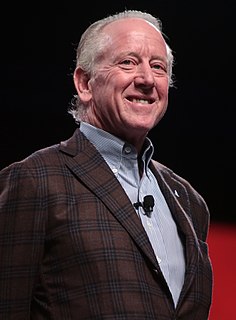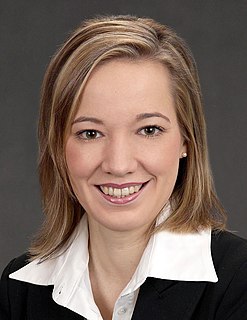A Quote by Sal Khan
The whole reason why we have this kind of assembly line model of education that we inherited from the Prussians, is they were the first people - it's a very egalitarian motive - to say how do we educate everyone.
Related Quotes
There are a lot of leaders that talk about ending things like oppression - whether it's discrimination or getting a job - but the reason for all of this stuff is somebody's making a profit off our backs. That's the reason why black people were brought here in the first place. It was a profit motive.
Somebody once told me, ‘Manage the top line, and the bottom line will follow.’ What's the top line? It's things like, why are we doing this in the first place? What's our strategy? What are customers saying? How responsive are we? Do we have the best products and the best people? Those are the kind of questions you have to focus on.
As I wrote I began to see more strongly that there were inescapable analogies. You couldn't really live through the '80s without feeling how crass and distasteful some of the economic doctrines were. The slave trade is a perfect model for that kind of total devotion to the profit motive without reckoning the human consequences.
There's no other way to learn about it, except through documentaries. I encourage documentarians to continue telling stories about World War II. I think documentaries are the greatest way to educate an entire generation that doesn't often look back to learn anything about the history that provided a safe haven for so many of us today. Documentaries are the first line of education, and the second line of education is dramatization, such as The Pacific.
Historical fact: People stopped being people in 1913. That was the year Henry Ford put his cars on rollers and made his workers adopt the speed of the assembly line. At first, workers rebelled. They quit in droves, unable to accustom their bodies to the new pace of the age. Since then, however, the adaptation has been passed down: we've all inherited it to some degree, so that we plug right into joy-sticks and remotes, to repetitive motions of a hundred kinds.
For what is meant by saying that a government ought to educate the people? Why should they be educated? What is the education for? Clearly, to fit the people for social life - to make them good citizens. And who is to say what are good citizens? The government: there is no other judge. And who is to say how these good citizens may be made? The government: there is no other judge. Hence the proposition is convertible into this - a government ought to mold children into good citizens, using its own discretion in settling what a good citizen is and how the child may be molded into one.

